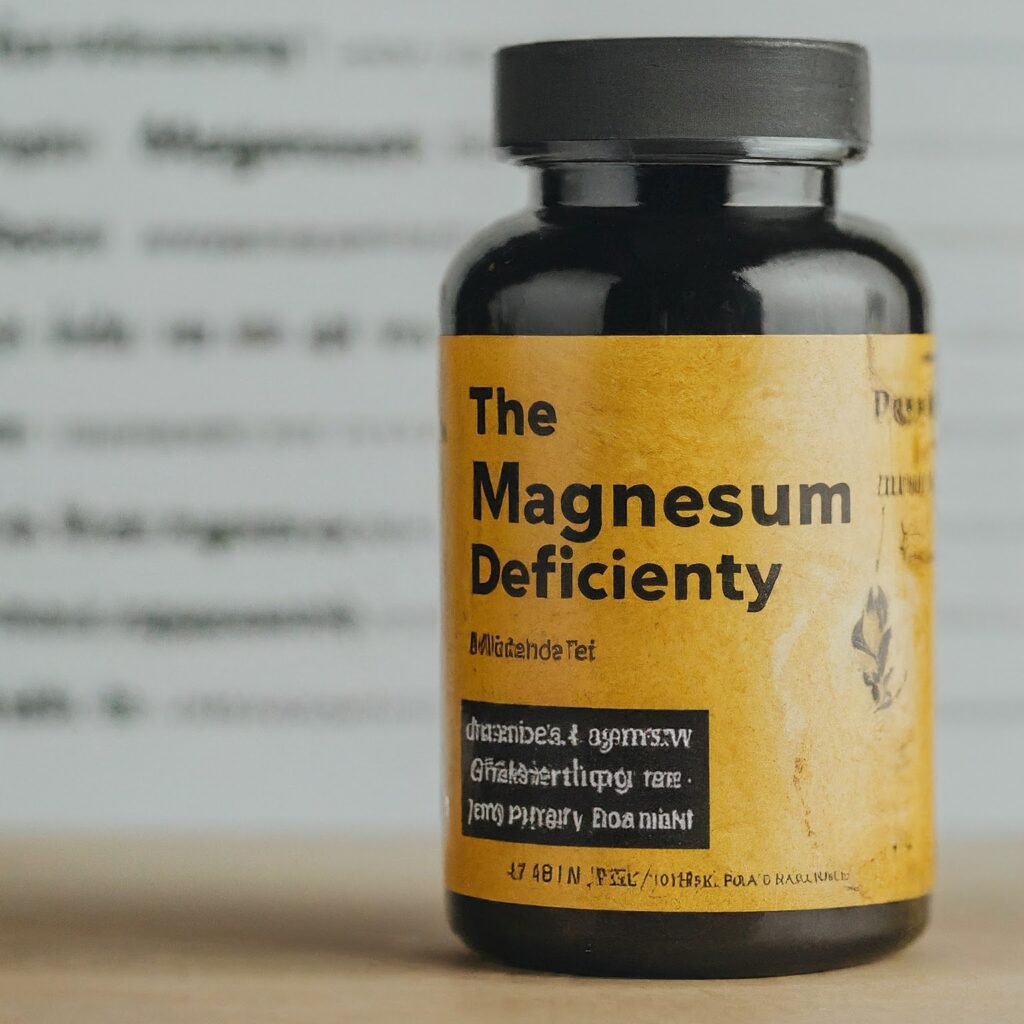Magnesium is an essential mineral involved in over 350 enzymatic reactions in the body, including DNA synthesis, nerve function, and muscle contraction. Despite its importance, many people suffer from magnesium deficiency, often unnoticed. This article explores 12 signs that may indicate a magnesium deficiency and provides practical tips on how to boost your magnesium levels naturally.

1. Twitching Muscles
One of the most common signs of magnesium deficiency is muscle twitching, especially in the eyelids. When your body lacks magnesium, excess calcium enters nerve cells, causing them to become overexcited and leading to involuntary muscle contractions.
2. Waking Up Between 2-3 AM
Frequent nighttime awakenings may be linked to high cortisol levels, a stress hormone. Adequate magnesium intake helps lower cortisol, promoting better sleep and a more regulated sleep-wake cycle.
3. Irritability
Feeling irritable, nervous, or easily triggered, especially when skipping meals, could be due to low magnesium levels. Magnesium helps regulate blood sugar, and a deficiency can disrupt energy production, leading to mood swings.
4. Heart Flutters
Irregular heartbeats, such as a pounding sensation or skipped beats, can be a sign of magnesium deficiency. Magnesium works with calcium to maintain proper heart muscle function, and a lack of it can cause these uncomfortable sensations.
5. High Blood Pressure
Magnesium helps relax and dilate arteries, facilitating smoother blood flow. Insufficient magnesium can cause calcium buildup in arteries, increasing blood pressure and the risk of heart disease.
6. Constipation
Magnesium supports smooth muscle relaxation in the colon, aiding in bowel movements. A deficiency can lead to constipation. Magnesium citrate can help draw water into the intestines, softening stools for easier passage.
7. Bone Pain
Magnesium plays a crucial role in bone health, working with vitamin D and calcium to keep bones strong. Deficiency can lead to bone pain (osteopenia) or even bone loss (osteoporosis).
8. Stiff Joints
Magnesium activates vitamin D to prevent calcium buildup outside joints, which can cause stiffness. Low magnesium levels may contribute to joint discomfort and stiffness.
9. Anxiety
A lack of magnesium, along with insufficient potassium and vitamin B1, can overactivate the body’s fight or flight response, leading to anxiety and obsessive thoughts.
10. Cravings for Chocolate
Magnesium depletion caused by stress can lead to cravings for chocolate, which is rich in magnesium. However, chocolate also contains oxalates that can bind to magnesium, creating an endless cycle of cravings.
11. Clawed Hands or Feet
Muscle spasms and tension in the hands and feet, causing them to clench into a claw-like position, can be a sign of magnesium deficiency. Proper magnesium levels help relax muscles and prevent such spasms.
12. Muscle Cramps
Muscle cramps, especially in the calves and neck, are common symptoms of magnesium deficiency. Increasing your intake of electrolytes, including magnesium, potassium, and calcium, can help alleviate these cramps.
How to Boost Magnesium Levels Naturally
Dietary Changes
- Leafy Greens: Include spinach, kale, and collard greens in your diet.
- Pumpkin Seeds: A rich source of magnesium.
- Yogurt: Provides magnesium and beneficial probiotics.
- Sea Salt: Opt for sea salt to get trace minerals, including magnesium.
- Wild Salmon: A great source of magnesium and omega-3 fatty acids.
Supplements
- Magnesium Glycinate: Highly absorbable and gentle on the stomach.
- Magnesium Citrate: Helps with bowel regularity and is easily absorbed.
Lifestyle Tips
- Electrolyte Powder: During fasting, mix an electrolyte powder with water and a pinch of sea salt to maintain magnesium levels.
- Vitamin D3: Take a vitamin D3 supplement to enhance magnesium absorption.
- Avoid Magnesium Depleters: Reduce intake of whole grains, refined grains, sugars, fructose, and junk foods that can deplete magnesium.
Supplements to Avoid
Avoid poorly absorbed magnesium supplements like magnesium oxide, sulfate, carbonate, or hydroxide. Instead, choose magnesium glycinate, citrate, or threonate for the best results.
Conclusion
Recognizing the signs of magnesium deficiency is crucial for maintaining optimal health. By incorporating magnesium-rich foods into your diet, taking the right supplements, and making mindful lifestyle changes, you can ensure your body gets the magnesium it needs. Always consult with a healthcare provider before starting any new supplement regimen.
For more health tips and advice, be sure to subscribe to our newsletter and explore our other informative articles.